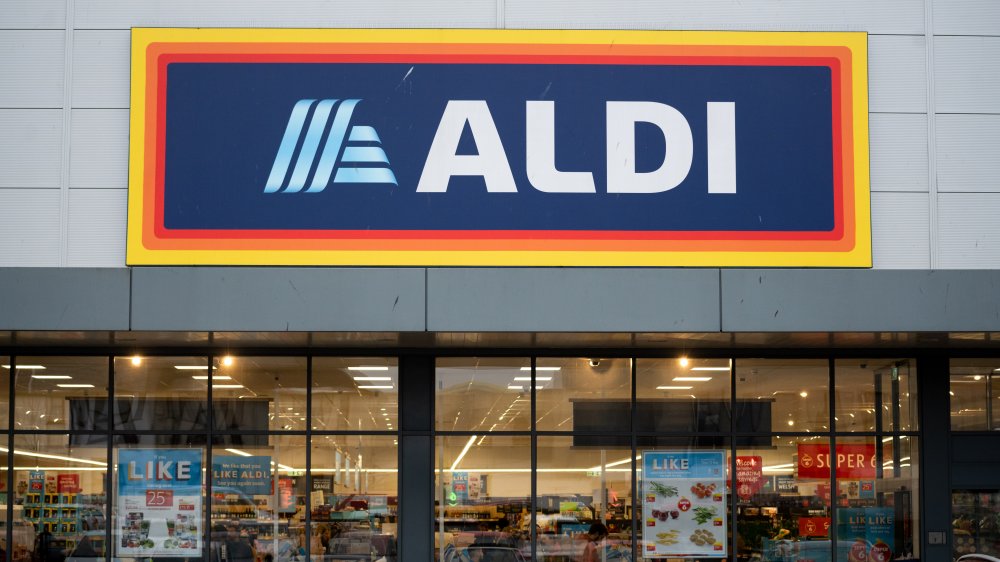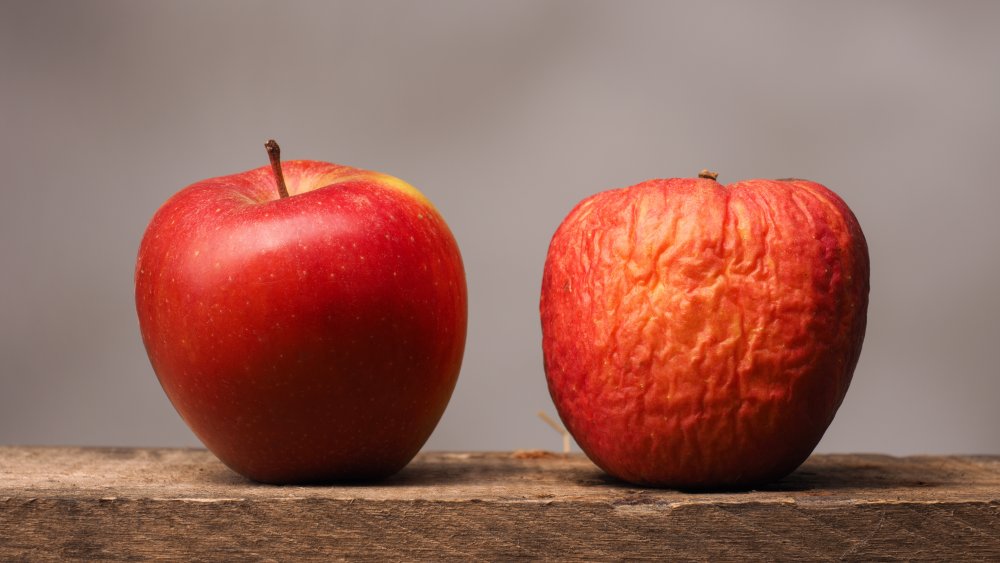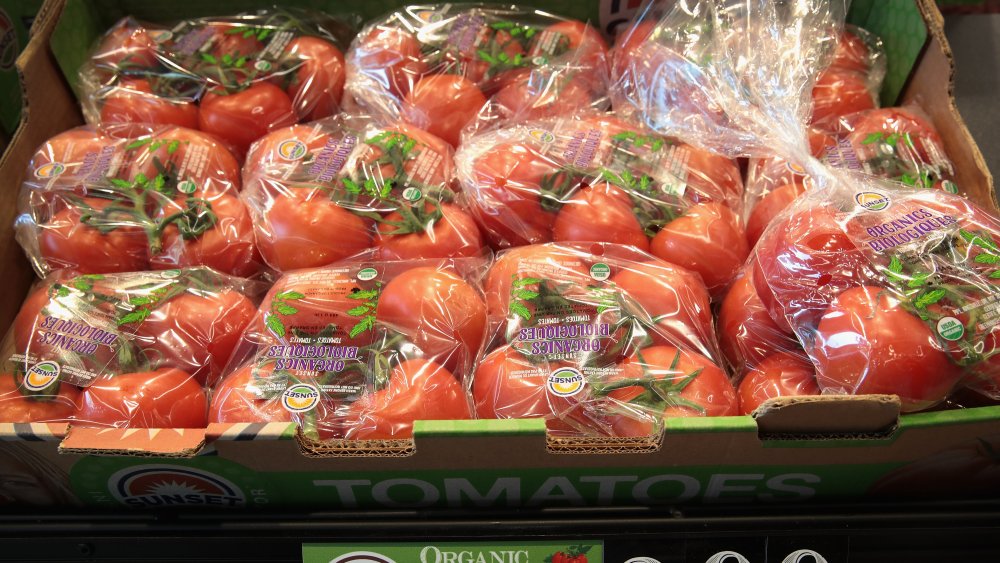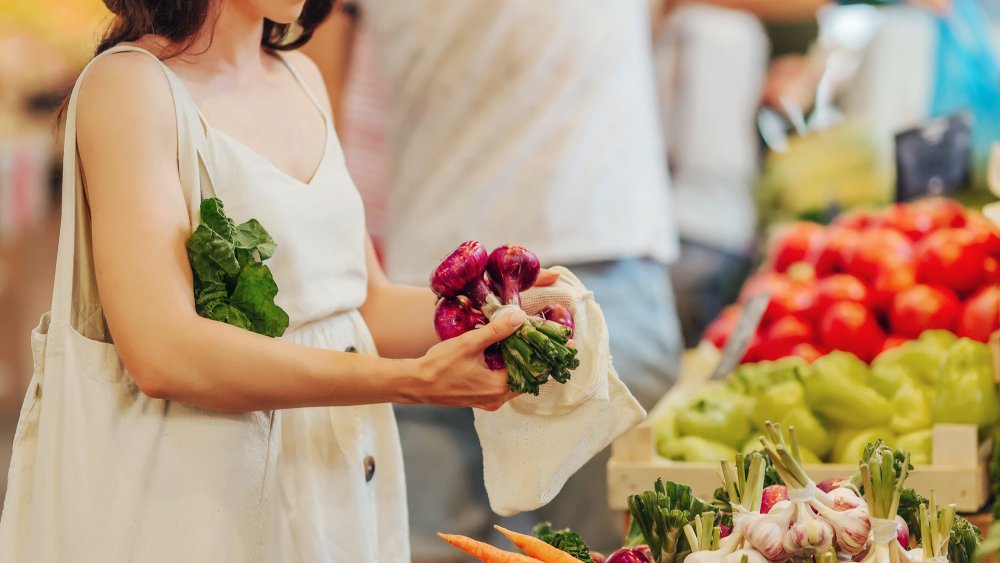Don't Buy Your Produce At Aldi. Here's Why
We know you love Aldi, and we don't mean to badmouth the unique grocery store chain; we love the setup, the wine selection, the abundant snack choices, and the always-affordable prices. But there's one place the store seems to fall short pretty consistently: their produce section. If you've ever been unable to find all the vegetables you need for your chili recipe, or noticed that the tomatoes or peppers you bought at your favorite Aldi seem to spoil sooner than vegetables and fruits bought elsewhere, you're not alone.
Aldi's produce tops CheatSheet's list of "don't buys," ThePennyHoarder has multiple complaints about availability and quality, and WiseBread isn't a fan, either. So what's the deal with Aldi's fresh fruits and veggies, and can we hope for a better experience in the future?
Shoppers say Aldi produce doesn't last
The first major issue many seem to take with the produce found at Aldi is that for some reason, it doesn't seem super fresh. Once you get it home, it may not last as long as fruits and veggies bought from other grocers. ThePennyHoarder doesn't mince words when it calls the store's produce "a tad scary looking — OK, REALLY scary looking." They complained about bruised tomatoes, brown bananas, and an abundance of fruit flies... yikes. Meanwhile, WiseBread says that even when the produce doesn't look bad at the store, it tends not to last long once you get it home, noting that a bag of potatoes went bad after just a few days and a batch of peppers became mush the very next day after purchase. And CheatSheet agrees that Aldi's fruits and veggies tend to spoil as soon as you get them home.
Why is this happening? One reviewer on the Consumer Affairs website theorizes part of the problem may be the stores' setup; most Aldis have their produce sections near the front of the store, where the doors are constantly opening and closing, exposing the food to constantly fluctuating temperatures. The Journal of the Japanese Society for Horticultural Science published a study that proved exposure to changing temperatures directly causes faster deterioration of vegetables like asparagus and mushrooms, so it's likely that living by the door, where it is exposed to extreme heat in the summer and extreme cold in the winter isn't helping the produce retain freshness.
Aldi has limited selection of produce and inconvenient packaging
Another significant issue customers find when purchasing produce at Aldi is both the limited selection and the inability to purchase certain items outside of bulk discount sizes. ThePennyHoarder says when they went to Aldi with a list, they couldn't find common items like cauliflower or mushrooms, and had to go back another day for those items. Further, they pointed out that things like onions and potatoes only came in two-pound or five-pound bags. That means if you're someone who lives alone and is shopping for themselves, you may not even get to use all of that before it goes bad, resulting in wasted money.
WiseBread echoes this sentiment, and further complains that even when the produce isn't necessarily going bad or covered in fruit flies, it just isn't the best quality. It calls Aldi's garlic cloves, for instance, tiny and difficult to peel and cut.
How Aldi is addressing its produce problems
So should we just completely write off Aldi's produce for all time? Thankfully, the store is taking heed of these customer complaints, and positive changes may be coming down the line in the future. In 2017, Business Insider reported that Aldi has been taking steps to address the produce problem in some of its newer stores, using Whole Foods as an example. They will be (and have already been in some locations) greatly expanding the produce section. They're also moving fresh produce to a more central location within the store, which should help keep temperatures more stable and hopefully eliminate that potential source of accelerated spoilage. There will also be a large refrigerated section that will be used to hold salad greens and certain fruits that need cooler temperatures, like berries and grapes. These refrigerated sections will also feature pre-made soups and dips.
So, if you are among the lucky few whose local Aldi has already made these changes and you've found no problems with your produce purchased there, keep on enjoying your fruits and veggies. If not, it may be a good idea to purchase your produce elsewhere until these changes are rolled out in your area.



